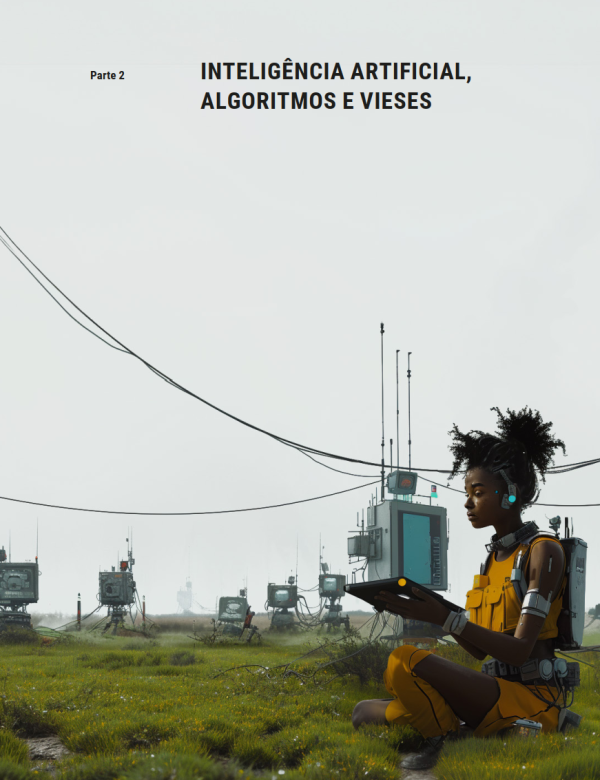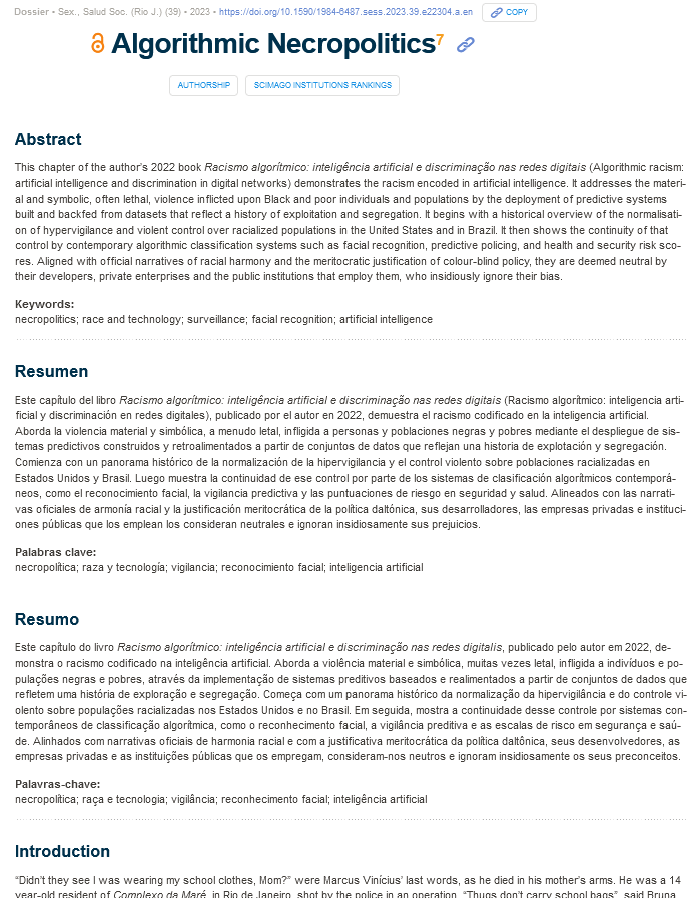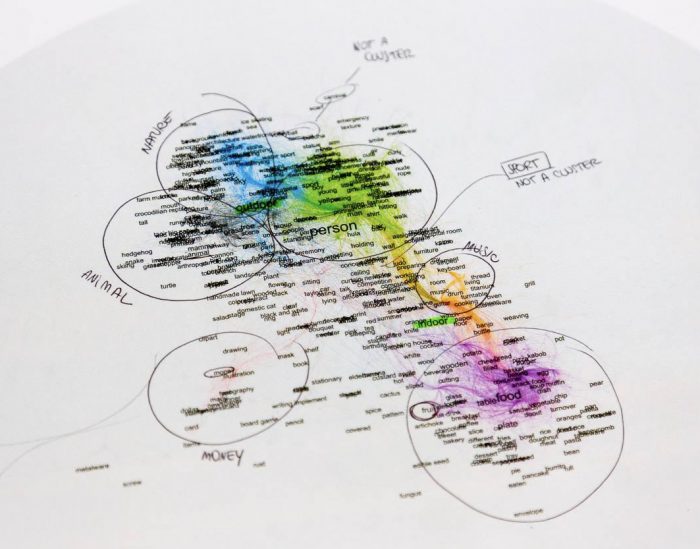Algorithmic Racism: artificial intelligence and discrimination in digital networks [EN; PT; ES]
Facial recognition, selfie filters, content moderation, chatbots, predictive policing and credit scoring are just some of the applications that use artificial intelligence systems today. But what happens when machines and programs show discriminatory results? The book presents a pungent overview about the incorporation of racial oppressions in digital communication and information technologies. When algorithms are given the power to decide – based on goals of their creators – what is risk, what is beautiful, what is toxic or what is merit, the discriminatory potentials multiply. The author investigates in an interdisciplinary way the phenomenon of algorithmic racism in technologies such as social media, search engines, computer vision and facial recognition.
Fighting Algorithmic Racism [EN]
The chapter analyses a set of initiatives built by activists, developers, scientists, and technologists from different areas to combat algorithmic racism. Based on reflections by Black intellectuals and interviews with activists who discuss technology and race, the text emphasizes that strategies around resistance, reactions, and remediation against the algorithmic transformation of structural racism involve remembering the different fronts of black movements in social battles and diasporic solidarity.
Algorithmic Necropolitics [EN]
The paper addresses the material and symbolic, often lethal, violence inflicted upon Black and poor individuals and populations by the deployment of predictive systems built and backfed from datasets that reflect a history of exploitation and segregation. It begins with a historical overview of the normalisation of hypervigilance and violent control over racialized populations in the United States and in Brazil. It then shows the continuity of that control by contemporary algorithmic classification systems such as facial recognition, predictive policing, and health and security risk scores. Aligned with official narratives of racial harmony and the meritocratic justification of colour-blind policy, they are deemed neutral by their developers, private enterprises and the public institutions that employ them, who insidiously ignore their bias.
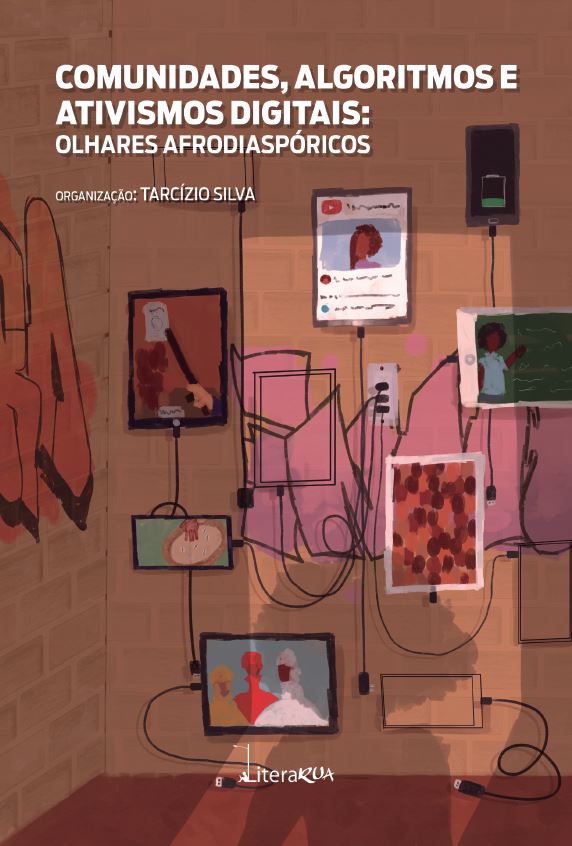
Print Edition (LiteraRua)
Amazon (print edition)
Open Access (PDF)
Communities, Algorithms and Digital Activisms: afrodiaspora lenses [PT-BR]
The edited collection brings together 14 chapters by researchers from Brazil and Afrodiaspora and African countries, such as Ethiopia, Ghana, Nigeria, Colombia, Congo, the United States and the United Kingdom. Gathering translated foreign texts and updated selected articles by Brazilians researchers, the book collaborates with the growing complexity of thinking about digital communication and the internet resulting from the diversification of lenses and debates about the issue in academic spaces.
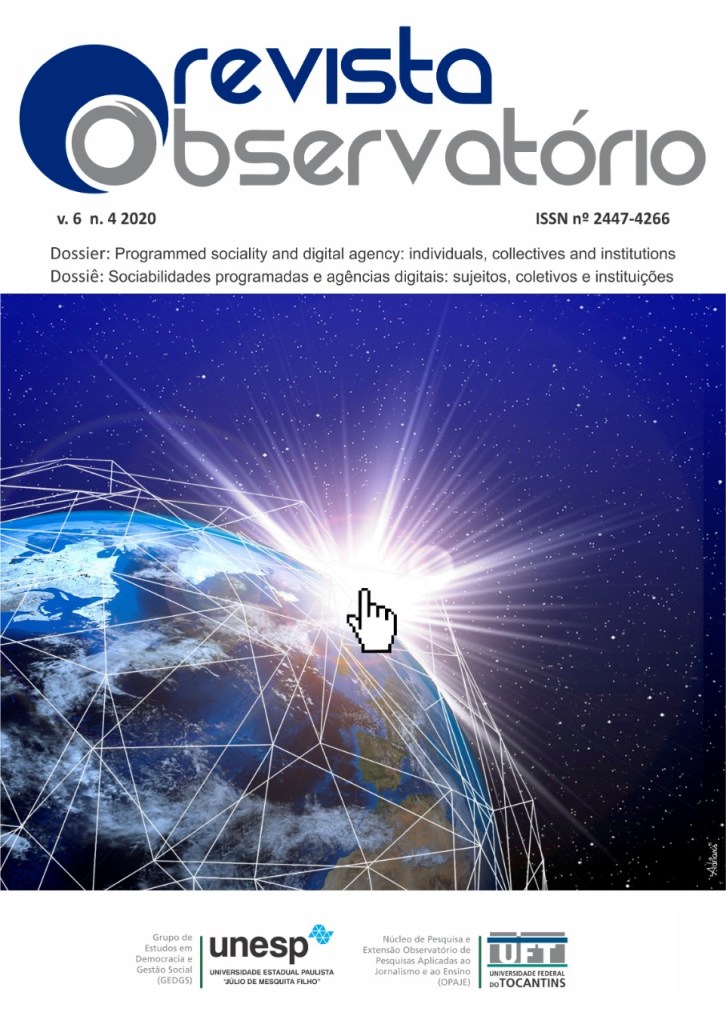
Open Access – EN (PDF)
Open Access – PT (PDF)
Controversies on Algorithmic Harms: corporate discourses on coded discrimination [w/ Sergio Amadeu] [EN]
Discriminatory impacts and the damages due to algorithmic systems have opened discussions regarding the scope of responsibility of communication technology and artificial intelligence companies. The article presents public controversies triggered by eight public cases of harm and algorithmic discrimination that generated public responses from technology companies, addressing the efforts made by them in framing the debate about responsibility in the course of planning, training and implementation of systems. Following that, it discusses how the opacity of systems is defended by the commercial companies that develop them, alleging prerogatives such as “industry secrets” and algorithmic inscrutability.
Interrogating Vision APIs [collaborative report] [EN]
This project proposes to investigate Vision APIs as research devices while experimentally applying them for the study of visual representation of countries through image results of demonyms (brazilian, portuguese, american etc). This double-ended approach is based on STS’s principle of symmetry, which takes an inquiry as concerning both the object of study and the methodology used in its description and analysis. To that end, the study is based on the approach of large visual datasets collected from different stock photos websites (Shutterstock and Adobe Photo), attempting to derive descriptions and to identify patterns of comparisons, also, developing considerations on the prospects and limits of the applied methodology.
Check more of my work at Google Scholar, ResearchGate or Curriculum Lattes

